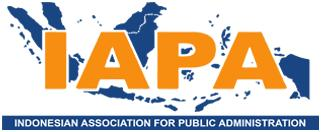Leveraging Social Media Data Analytics for Tourism Marketing Policies in West Java, Indonesia
Abstrak
After the government failed to release updated data on the handling of COVID-19, the status of the pandemic in Indonesia has been declared to have ended and transitioned into an endemic disease. This policy has received various responses from the public, including the tourism sector. Therefore, the objective of this research is to gain a comprehensive understanding of the public perception regarding the issue of tourism during the endemic period by examining how people communicate through social media, particularly Twitter. The research method employed is the collection of Twitter conversations from February 2nd, 2023, at 12:00 PM WIB until March 30th, 2023, at 11:59 PM WIB using the DEA (Data Envelopment Analysis) system through Twitter's API (Application Programming Interface). The research findings indicate that out of a total of 1823 analyzed tweets, 77% of them demonstrate a positive sentiment towards tourism, while 17% or 394 tweets exhibit a negative sentiment, and only 6% or 140 tweets show a neutral sentiment. These findings present opportunities for the West Java provincial government to utilize Twitter as a valuable source of information for decision-making and policy evaluation during the endemic period.
Kata Kunci
Teks Lengkap:
PDFReferensi
Adeola, O., Boso, N. and Adeniji, J. (2018) ‘Bridging institutional distance: An emerging market entry strategy for multinational enterprises’, in Emerging Issues in Global Marketing: A Shifting Paradigm, pp. 205–230. Available at: https://doi.org/10.1007/978-3-319-74129-1_8.
Amini, A. et al. (2022) ‘Soft hypergraph for modeling global interactions via social media networks’, Expert Systems with Applications, 203. Available at: https://doi.org/10.1016/j.eswa.2022.117466.
Antypas, D., Preece, A. and Camacho-Collados, J. (2023) ‘Negativity spreads faster: A large-scale multilingual twitter analysis on the role of sentiment in political communication’, Online Social Networks and Media, 33. Available at: https://doi.org/10.1016/j.osnem.2023.100242.
Bergquist, M. et al. (2017) ‘From e-government to e-governance: Social media and public authorities legitimacy work’, in Proceedings of the 25th European Conference on Information Systems, ECIS 2017, pp. 858–872. Available at: https://www.scopus.com/inward/record.uri?eid=2-s2.0-85033385029&partnerID=40&md5=2140f2c7fbb2776814bd1369bdcf8842.
Cant, M.C. et al. (2017) ‘Empirical results of the awareness of social media and its application by academics in teaching in New Zealand’, Journal of Business and Retail Management Research, 12(1), pp. 1–12. Available at: https://doi.org/10.24052/jbrmr/v12is01/erotaosmaiabaitinz.
Cao, J. et al. (2022) ‘The #StopAsianHate Movement on Twitter: A Qualitative Descriptive Study’, International Journal of Environmental Research and Public Health, 19(7). Available at: https://doi.org/10.3390/ijerph19073757.
Chancellor, C., Townson, L. and Duffy, L. (2021) ‘Destination ambassador programs: Building informed tourist friendly destinations’, Journal of Destination Marketing and Management, 21(January), p. 100639. Available at: https://doi.org/10.1016/j.jdmm.2021.100639.
Cherichi, S. and Faiz, R. (2019) ‘Upgrading event and pattern detection to big data’, International Journal of Computational Science and Engineering, 18(4), pp. 404–412. Available at: https://doi.org/10.1504/IJCSE.2019.099078.
Cleaver, L., Lawas, K. and Marshall, A. (2023) ‘How business can address sensitive cultural challenges through tech-enabled, large-scale open collaboration and innovation with stakeholders’, Strategy and Leadership, 51(1), pp. 35–40. Available at: https://doi.org/10.1108/SL-10-2022-0097.
Dellmuth, L. and Shyrokykh, K. (2023) ‘Climate change on Twitter: Implications for climate governance research’, Wiley Interdisciplinary Reviews: Climate Change [Preprint]. Available at: https://doi.org/10.1002/wcc.848.
Demirdis, S., Vicari, S. and Reilly, P. (2023) ‘Hashtag publics, networked framing and the July 2016 rcoupr in Turkey’, First Monday, 28(3). Available at: https://doi.org/10.5210/fm.v28i3.12867.
Downing, J. and Brun, E.E. (2022) ‘“I Think Therefore I Don’t Vote”: discourses on abstention, distrust and twitter politics in the 2017 French presidential election’, French Politics, 20(2), pp. 147–166. Available at: https://doi.org/10.1057/s41253-021-00166-6.
Gallagher, R. and Topinka, R. (2023) ‘The politics of the NPC meme: Reactionary subcultural practice and vernacular theory’, Big Data and Society, 10(1). Available at: https://doi.org/10.1177/20539517231172422.
Gkritzali, A., Mavragani, E. and Gritzalis, D. (2020) ‘Negative MWOM and value co-destruction during destination crises’, Business Process Management Journal, 26(4), pp. 839–856. Available at: https://doi.org/10.1108/BPMJ-07-2019-0278.
Graham, T. et al. (2021) ‘#IStandWithDan versus #DictatorDan: the polarised dynamics of Twitter discussions about Victoria’s COVID-19 restrictions’, Media International Australia, 179(1), pp. 127–148. Available at: https://doi.org/10.1177/1329878X20981780.
Joseph, N. et al. (2017) ‘Review of discussions on internet of things (IoT): Insights from twitter analytics’, Journal of Global Information Management, 25(2), pp. 38–51. Available at: https://doi.org/10.4018/JGIM.2017040103.
Kountouri, F. and Kollias, A. (2023) ‘Polarizing publics in Twitter through organic targeting tactics of political incivility’, Frontiers in Political Science, 5. Available at: https://doi.org/10.3389/fpos.2023.1110953.
Lee, J. (2021) ‘“I don’t understand what you’re saying now, but you are cute, I love you ”: Global communication between South Korean gay male YouTubers and fans from overseas’, Feminist Media Studies, 21(6), pp. 1044–1049. Available at: https://doi.org/10.1080/14680777.2021.1959372.
Liu, Z. et al. (2023) ‘Mapping the relationship between social media usage and organizational performance: A meta-analysis’, Technological Forecasting and Social Change, 187. Available at: https://doi.org/10.1016/j.techfore.2022.122253.
Man, C.-Y., Palmer, D.A. and Qian, J. (2022) ‘The Belt and Road Initiative on Twitter: An annotated dataset’, Data in Brief, 45. Available at: https://doi.org/10.1016/j.dib.2022.108711.
Nenjerama, T.T. (2022) ‘“#GodIsInIt”: The Appropriation of Christianity into Politics by Nelson Chamisa in the 2018 Zimbabwean Presidential Election Contestations’, Journal of Asian and African Studies [Preprint]. Available at: https://doi.org/10.1177/00219096221123741.
O’Regan, M and Choe, J. (2023) ‘#overtourism on Twitter: a social movement for change or an echo chamber?’, Current Issues in Tourism, 26(7), pp. 1082–1095. Available at: https://doi.org/10.1080/13683500.2022.2047161.
O’Regan, Michael and Choe, J. (2023) ‘#overtourism on Twitter: a social movement for change or an echo chamber?’, Current Issues in Tourism, 26(7), pp. 1082–1095. Available at: https://doi.org/10.1080/13683500.2022.2047161.
Padilla-Castillo, G. and Rodríguez-Hernández, J. (2023) ‘International Youth Movements for Climate Change: The #FridaysForFuture Case on Twitter’, Sustainability (Switzerland), 15(1). Available at: https://doi.org/10.3390/su15010268.
Rahmanti, A.R. et al. (2021) ‘Social Media Data Analytics for Outbreak Risk Communication: Public Attention on the “New Normal” During the COVID-19 Pandemic in Indonesia’, Computer Methods and Programs in Biomedicine, 205, p. 106083. Available at: https://doi.org/10.1016/j.cmpb.2021.106083.
Salvador-Almela, M. (2023) ‘The role of humanitarian celebrities in volunteer tourism: Exploring their representation on Instagram’, Journal of Hospitality and Tourism Management, 55, pp. 228–239. Available at: https://doi.org/10.1016/j.jhtm.2023.04.004.
Sun, B. and Liu, Y. (2023) ‘The double-edged sword effect of social media usage on new product development performance: evidence from Chinese firms’, European Journal of Innovation Management, 26(1), pp. 265–287. Available at: https://doi.org/10.1108/EJIM-04-2021-0219.
Udanor, C., Aneke, S. and Ogbuokiri, B.O. (2016) ‘Determining social media impact on the politics of developing countries using social network analytics’, Program, 50(4), pp. 481–507. Available at: https://doi.org/10.1108/PROG-02-2016-0011.
Utku, A., Can, U. and Aslan, S. (2023) ‘Detection of hateful twitter users with graph convolutional network model’, Earth Science Informatics, 16(1), pp. 329–343. Available at: https://doi.org/10.1007/s12145-023-00940-w.
Del Valle, E. and De La Fuente, L. (2023) ‘Sentiment analysis methods for politics and hate speech contents in Spanish language: a systematic review’, IEEE Latin America Transactions, 21(3), pp. 408–418. Available at: https://doi.org/10.1109/TLA.2023.10068844.
Wang, H. et al. (2023) ‘How Does Friendship Motivate Frontline Employees to Exhibit Brand Ambassador Behavior: The Important Role of Well-Being and Helping Behavior’, Sustainability (Switzerland), 15(8). Available at: https://doi.org/10.3390/su15086859.
Weismueller, J. et al. (2022) ‘What makes people share political content on social media? The role of emotion, authority and ideology’, Computers in Human Behavior, 129. Available at: https://doi.org/10.1016/j.chb.2021.107150.
Zeng, X. et al. (2022) ‘Modeling Global and Local Interactions for Online Conversation Recommendation’, ACM Transactions on Information Systems, 40(3). Available at: https://doi.org/10.1145/3473970.
DOI: https://doi.org/10.24198/jmpp.v7i1.45229
Refbacks
- Saat ini tidak ada refbacks.
Jurnal Manajemen Pelayanan Publik Indexed By:



This work is licensed under a Creative Commons Attribution-ShareAlike 4.0 International License.


















21.png)



.png)